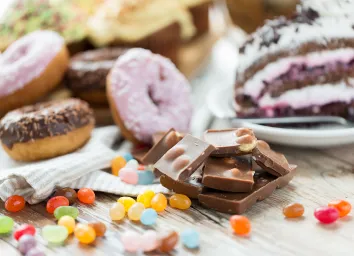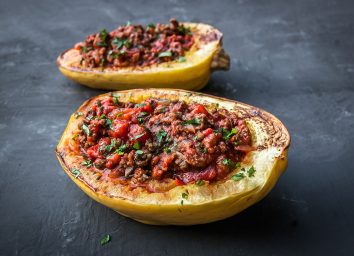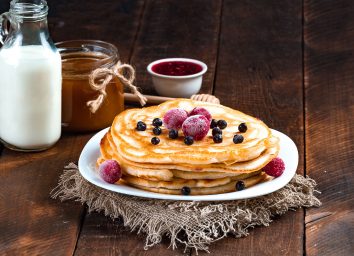30 Foods You Should Eat More of Once You Turn 30
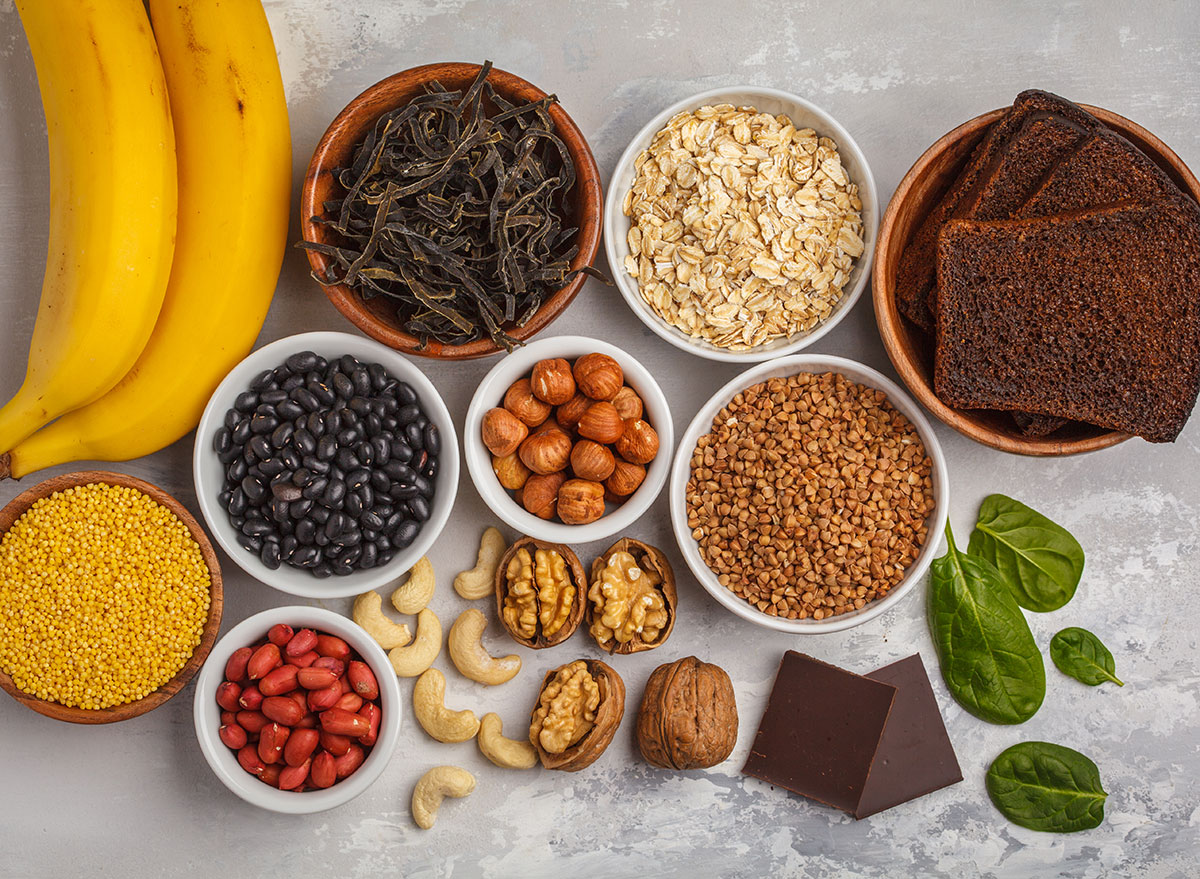
The time around your 30s is probably full of career growth, family growth…and waistline growth. In fact, the largest jump in weight over the lifespan takes place in a person's late 20s, according to a Centers for Disease Control report.
"Think of nutrition and health like a 'bank account.' You put deposits into your health bank account with delicious, nutritious plant foods. You take out a withdrawal here or there at happy hour, the monthly office birthday celebration or the steak barbecue. So long as your deposits outweigh your withdrawals, you'll be on the path to lasting health, beginning in your 30s," says Suzanne Dixon, RD, a registered dietitian at The Mesothelioma Center in Portland, Oregon.
While you may feel unstoppable and on the fast track as you enter the next decade, the dozen-plus experts we spoke to for this story say that now is the time to lay the groundwork for a longer, stronger life.
"Decades before you actually become sick, poor dietary choices begin to chip away at your health. Sure, we feel invincible at 30, but the damage we are doing to our bodies in our 30s will come back to haunt us in our 40s, 50s, 60s, and beyond," Dixon says.
You don't need a medicine cabinet full of supplements or a fridge full of odd elixirs to fight back against age-related health issues. Just add these delicious foods and drinks to your menu for a big wellness boost.
Check out these 50 fountain of youth secrets, too.
Beans
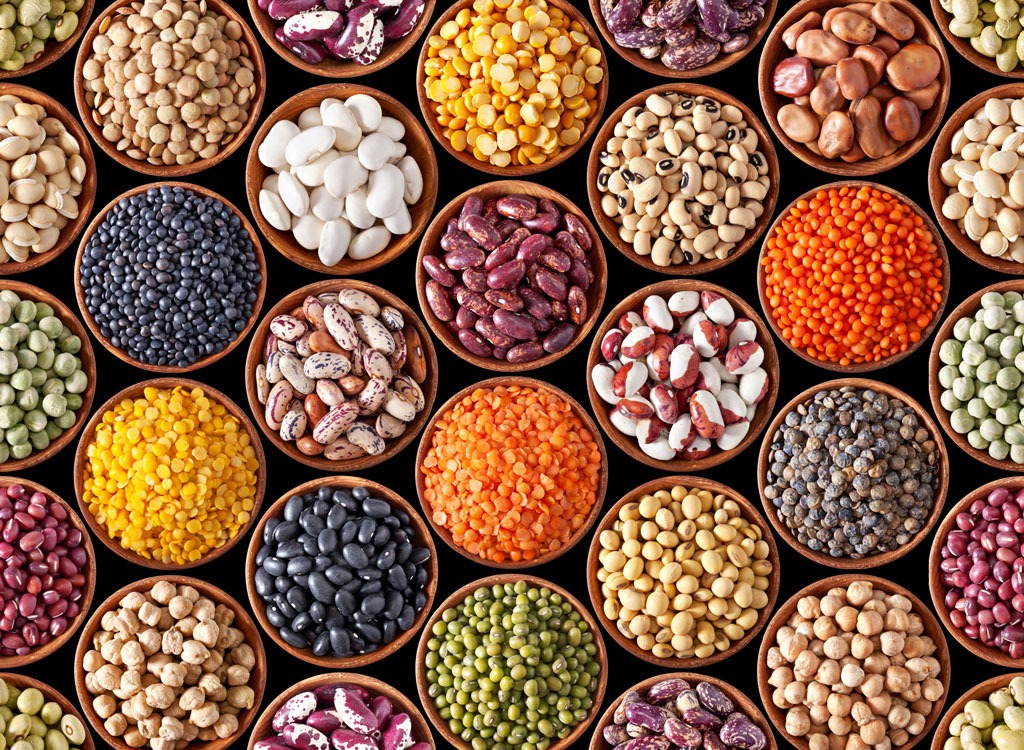
Many Americans struggle to reach their fiber quotas each day (25 grams for women, 38 grams for men, per the Academy of Nutrition and Dietetics).
"Fiber is not only important for helping control blood sugar and appetite, but it also reduces risk for colon cancer," says Mike Roussell, PhD, nutrition consultant in Rochester, New York, and co-founder of the brain supplement Neutein. "During your 30s, you're 30 percent more likely to be diagnosed with cancers in stage III or IV than at another time in your life. Eating more vegetables, opting for whole grains over refined grains and consuming beans each and every day will ensure that you are getting ample fiber."
Beans are one of Dixon's favorite foods, too, due to their plant-based protein (about 15 grams per cooked cup) and ability to boost levels of good bacteria in the body.
"The microbiome is comprised of the trillions of bacteria, viruses, fungi and other microbes living in our bodies. Probiotics, found in fermented foods and some dietary supplements, are the actual gut 'bugs.' Prebiotics are the food for the healthiest gut bugs. Legumes are one of the richest sources of these prebiotic fibers. A healthy gut microbiome is known to help regulate inflammation, lower blood cholesterol levels and improve immune function," Dixon says.
Leafy Greens
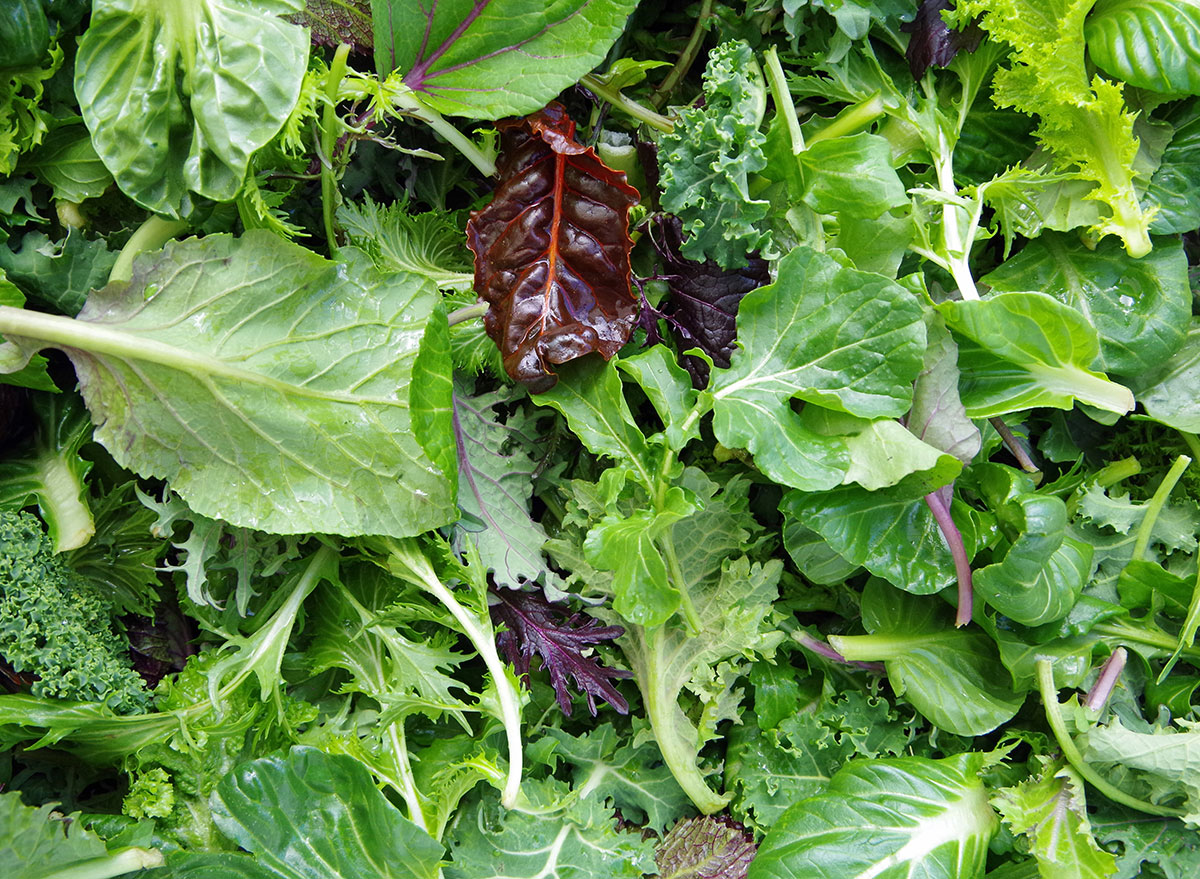
Your mom's been telling you to eat your greens since you were five, and it's more important than ever to take that advice once you enter your 30s.
"Dark leafy greens are high in vitamin A, a potent antioxidant that can help to fight inflammation. Inflammation levels can begin to climb in our 30s, and can put you at increased risk for heart disease, stroke and certain cancers," says Ashley Reaver, RD, a registered dietitian at Ashley Reaver Nutrition LLC in Oakland, California. "A diet high in antioxidants can help to keep inflammation levels at bay."
Inflammation can be the driving force behind pain, discomfort, and tissue damage.
"If normal cell-to-cell communication is like two neighbors chatting over the back fence about the weather and the kids, inflamed cell-to-cell communication is like two neighbors screaming at each other about a property line dispute. Everything our bodies do naturally is ratcheted up with inflammation. If we have pain, inflammation makes it more intense," Dixon explains.
Carolyn Dean, MD, ND, a naturopathic doctor in the Bronx, New York, and a medical advisory board member for the Nutritional Magnesium Association, recommends kale, Swiss chard, and spinach specifically since they're high in magnesium.
"The body needs magnesium to properly function and will help improve energy levels, support blood-sugar balance, proper blood pressure, heart health, brain health, and bone health. Magnesium is vital for proper muscle function and nerve firing as well," Dean says.
And for the females, leafy greens have an added benefit by way of folate. "If you are planning to start a family—or add another little one to the mix—folate is a must. Folate from foliage, such as leafy greens, is an easy addition to any diet," Stephanie May, RD, a registered dietitian at The College of William & Mary in Williamsburg, Virginia.
Asparagus
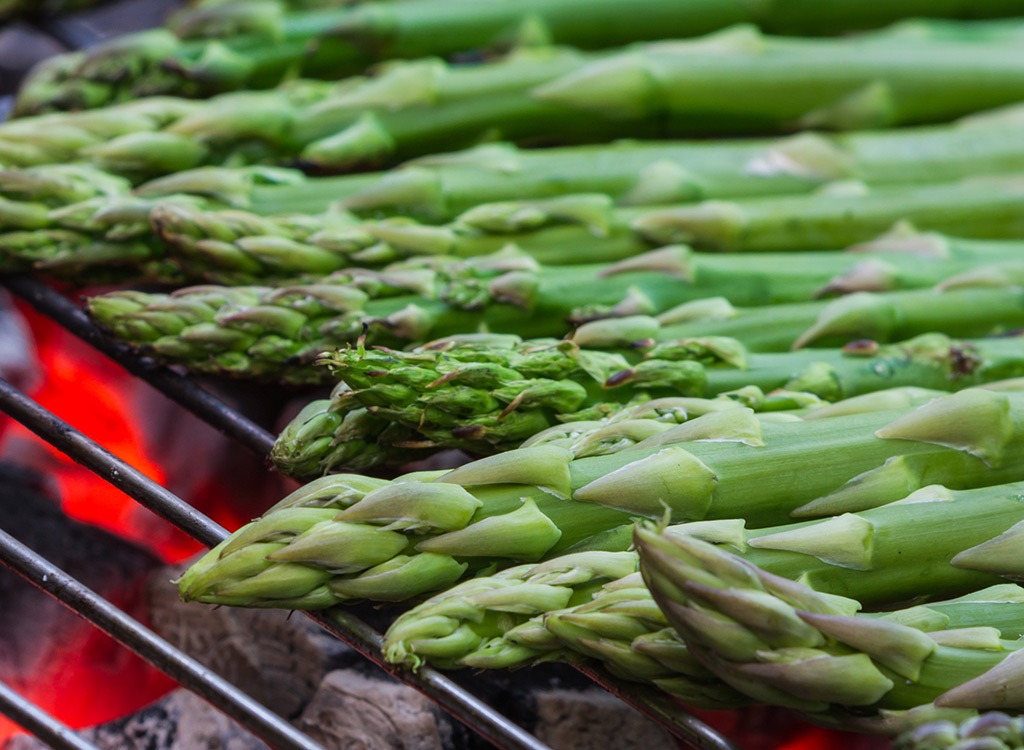
You can also get your folate fix from these green stalks.
"Folate is a B vitamin that plays a role in cell growth and promotes proper fetal development," says Mary Broe, RD, a registered dietitian at Rhode Island Hospital in Providence, Rhode Island.
While food sources are the best place to start, it may be necessary to supplement if you're planning to get pregnant. Broe recommends talking to your OBGYN and/or doctor for their personalized folate 411.
Blueberries
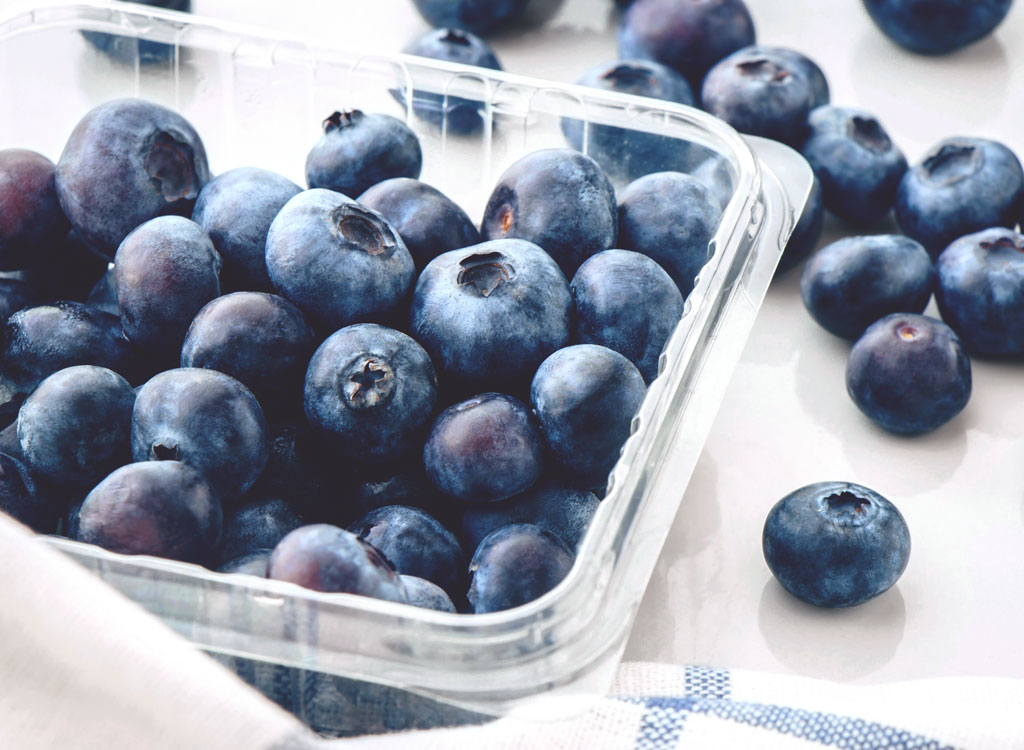
Steps away in the supermarket, you'll find one of the most potent anti-inflammatories available. (Nope, we're not talking about ibuprofen.)
"Brightly colored purple and red berries have potent anti-inflammatory actions in the body. A group of compounds called polyphenols, which are found in abundance in berries, appear to decrease inflammation throughout the body," Dixon says.
The mounting stresses of a full workload plus lack of sleep, say, because of a crying baby or a late night on the town, can promote free radicals that cause the body to age quicker.
"Antioxidant-rich foods, such as berries, are important because they fight these cell-damaging free radicals and can repair and prevent the stress to the body. This ultimately leads to better skin, bone, and muscle health," May says.
Cherries

Cherries are the opposite of "the pits," Dixon says.
"Cherries have many of the same healthy nutrients as dark-colored berries. Studies of berry and cherry juice show these foods can offset the muscle soreness associated with a hard workout," she adds.
Cherries are such a strong anti-inflammatory that research has proven they can help alleviate pain and inflammation associated with osteoarthritis ("garden-variety arthritis almost everyone gets as they age," Dixon says).
Just like many age-related chronic conditions, osteoarthritis starts in the 20s and 30s, but doesn't present itself as uber-painful until the 40s or 50s. Start early by popping a serving of cherries a few times a week to protect joints against cartilage breakdown and inflammation.
Potatoes
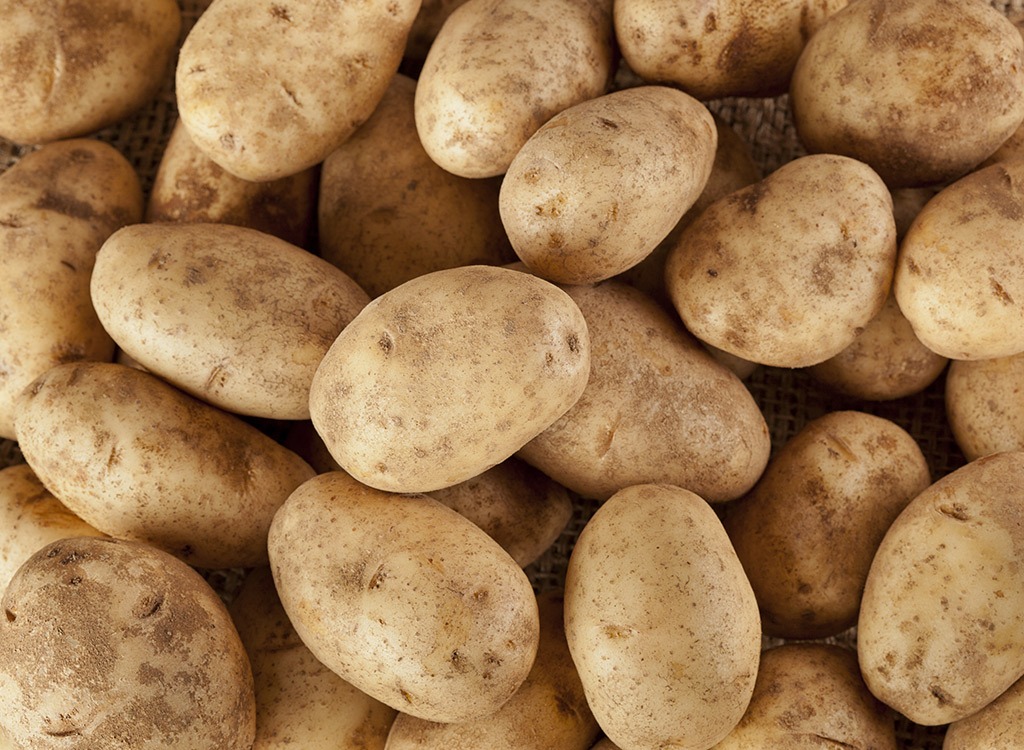
Potassium plays a big role in keeping blood pressure in check. But get this: Bananas don't even crack the top 20 in terms of the top potassium food sources. One potato offers more than double the amount of potassium than one banana, according to the USDA Nutrient Database.
"As we get older our blood pressure naturally begins to increase. Consuming more dietary potassium can help lower blood pressure," Rousell says.
Beans, tomatoes, and winter squash are also strong sources.
Coffee

Here's another reason to get buzzed with a cup of java.
"Studies consistently demonstrate coffee as potentially protective against multiple types of cancer , cardiovascular disease, dementia, liver disease, and diabetes since it reduces oxidative stress on the body," Dixon says.
"Skip fancy coffee drinks that are loaded with sugar and fat. Go for regular coffee with just a splash of cream or teaspoon of sugar," Dixon says.
Tea
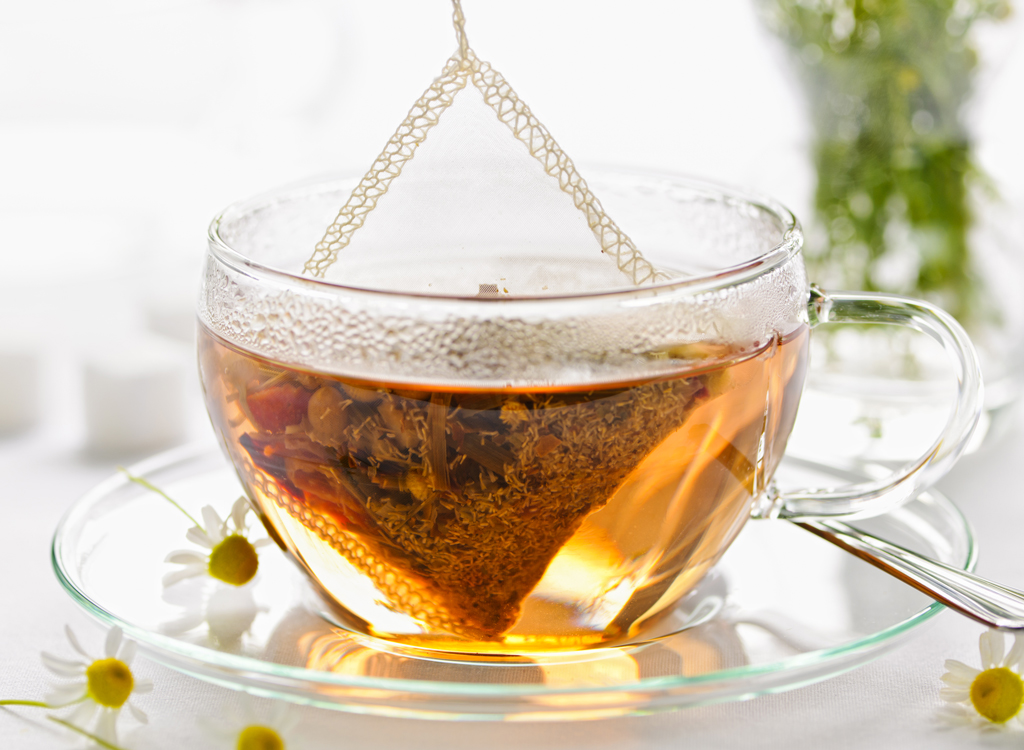
Tea, too, is a brilliant beverage choice during your 30s. Green, black, and white varieties are strong sources of antioxidants and anti-inflammatory substances.
"Black tea consumption has been linked to improved bone density in older women in numerous studies, and a green-tea habit has been shown to reduce risk of breast and other cancers," Dixon says. "A 2018 review also found a connection between regular tea consumption and reduced risk of colds and flu!"
Green tea, in particular, cuts down on cardiovascular disease risk by protecting against lipid oxidation, a factor that can block arteries and lead to plaque build-up in blood vessels.
Yogurt
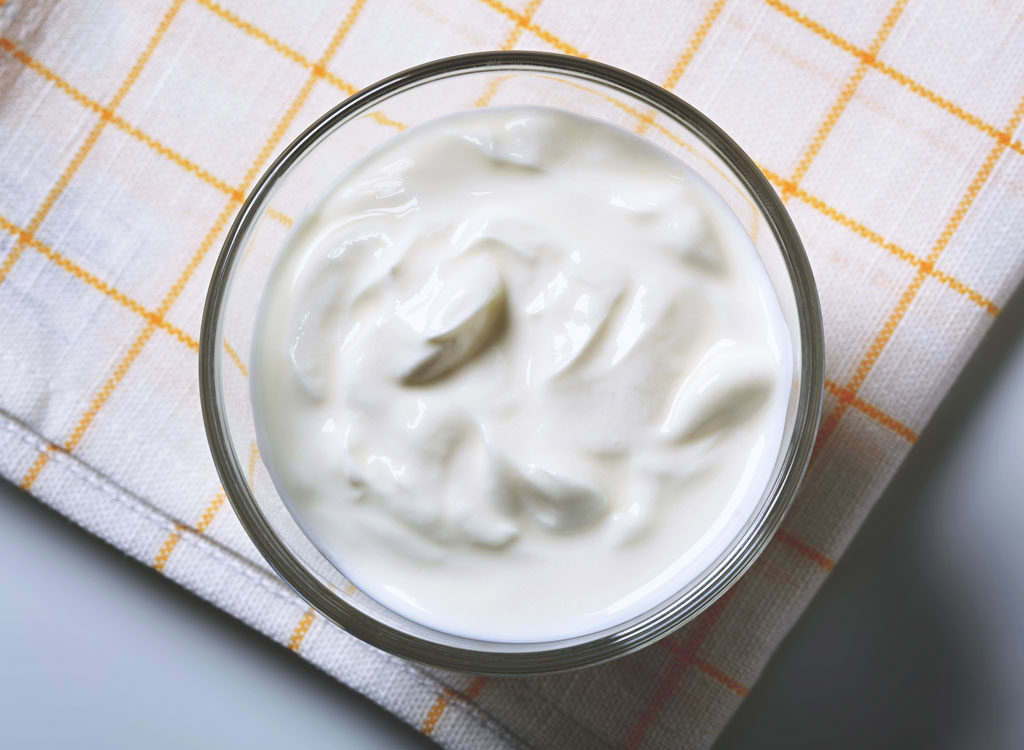
Calcium is key to solidifying skeletal strength.
"Bone absorption decreases starting at age 25, so it's important to keep as much bone density as possible in your 30s. Calcium in dairy products such as yogurt can help with that," says Nicolette Pace, RD, a registered dietitian in Great Neck, New York and the founder of NutriSource Inc.
Dairy is the best source of dietary calcium and is rich in vitamin K2, which directs the calcium to our bones where it is needed, says Pamela Schoenfeld, MS, RDN, a registered dietitian nutritionist in Raleigh, North Carolina, and the author of The Collagen Diet: Rejuvenate Skin, Strengthen Joints, and Feel Younger by Boosting Collagen Intake and Production.
Start these healthy habits by the time your 30.
Chia Seeds
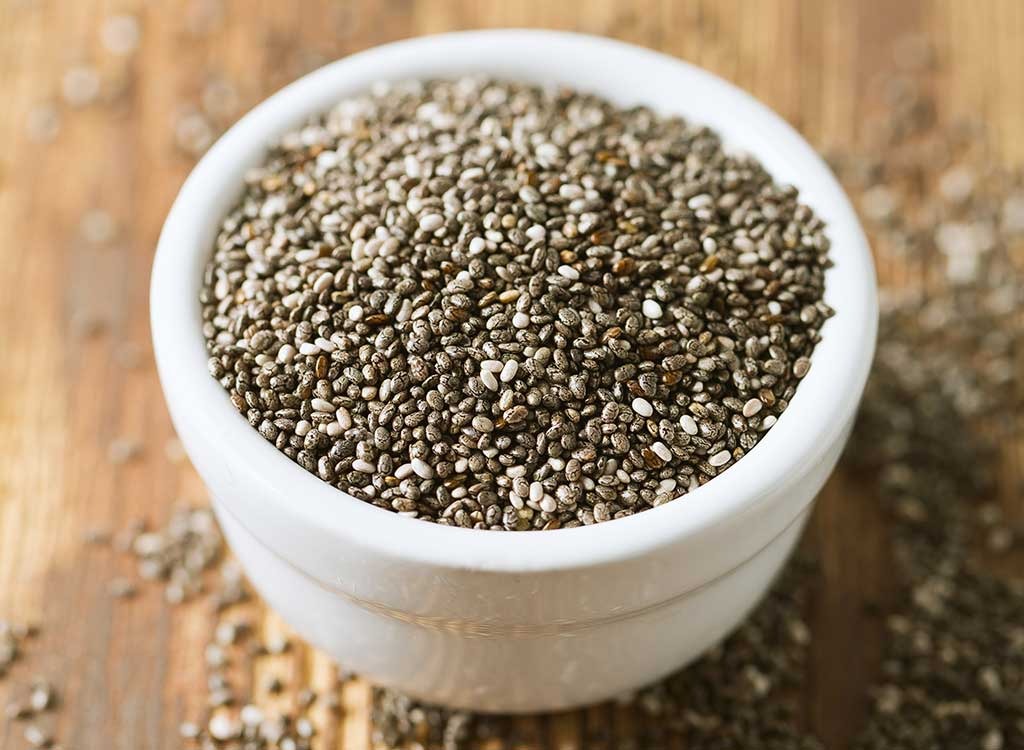
You loved them in the '90s for their epic growing abilities. Now it's time for a ch-ch-ch-chia comeback.
"Omega-3s protect against cardiovascular disease and inflammation while keeping cognition and cellular functions strong. All of these issues become more relevant as we age," says Bari Stricoff, RD, a registered dietitian in New York City.
Seeds of many kinds are stellar omega-3 options, but chia is a RD favorite since it contains a bit more fiber and alpha linolenic acid (ALA) omega-3s than flax.
Prunes
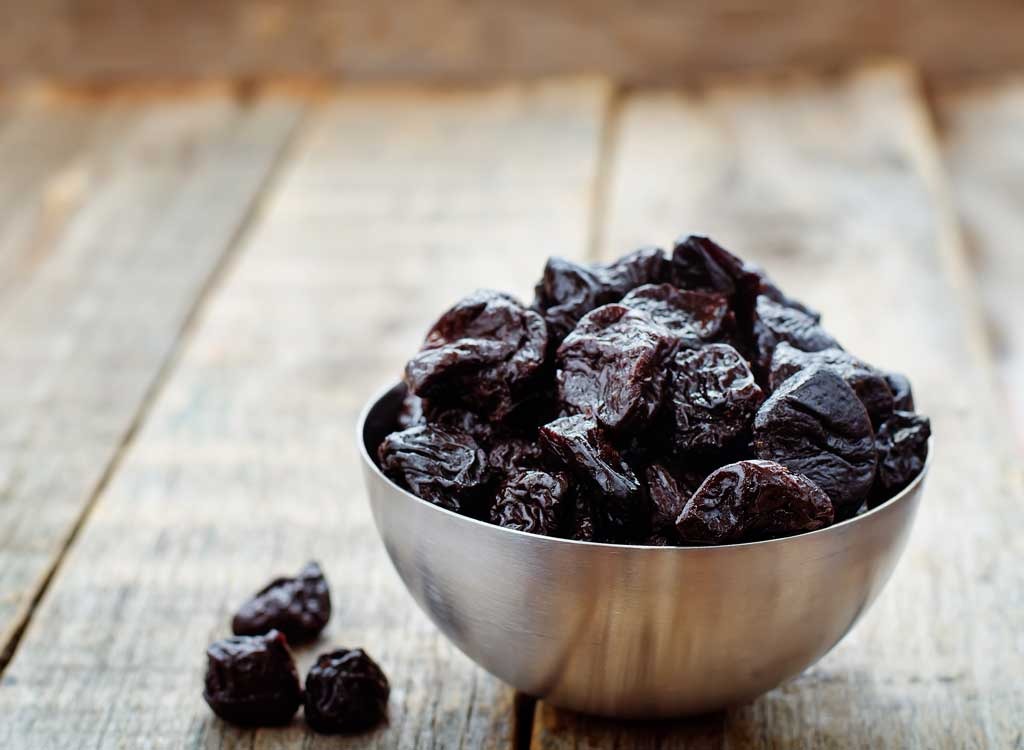
Dried plums aren't just for the denture-wearing crowd, says Lauren Harris-Pincus, MS, RDN, a registered dietitian nutritionist in New York City, founder of NutritionStarringYOU.com and the author of the cookbook The Protein-Packed Breakfast Club.
"I'm a huge fan of prunes for young to middle-aged adults to help keep bones strong and healthy. They offer potassium, magnesium, vitamin K, and polyphenols that have been shown to support bone health, all in a bite-sized package," she says. "Of course, prunes are also good at what we all have heard them lauded for: fiber! They act as a natural laxative to help keep things moving."
Salmon

We're prone to start losing vitamin D as soon as we hit that age when we stop going outside every afternoon to play tag. Then once we start the desk-job hustle in our 20s, we may never see the sun again
"How often do you find yourself inside most of the day? We aren't outside as much as we were in our youth and we are missing that vital component to make vitamin D: sunshine," May says.
Being sun smart—donning long sleeves and slathering on sunscreen—is well worth it for the cancer-fighting benefits. But this also cuts back on your body's D-velopment.
"Vitamin D is the only vitamin our body can make. When sunlight hits your skin, a reaction starts and you are making vitamin D. Just like that! All you need is about 15 minutes on a sunny day to increase your vitamin D levels," May adds.
But remove the rays and you'll need to recoup the vitamins through food sources of vitamin D, such as salmon, tuna, egg yolks, and fortified foods.
Reaver has another reason for telling her 30-year-old clients to go fish."Fatty fish, like salmon, is increasingly important as we age. Not only is it a great source of lean protein that can help maintain muscle mass, but it is also an excellent source of polyunsaturated fats. These fats can help to promote 'good' cholesterol levels, battle inflammation, and maintain proper hormone levels," she says.
Brazil Nuts
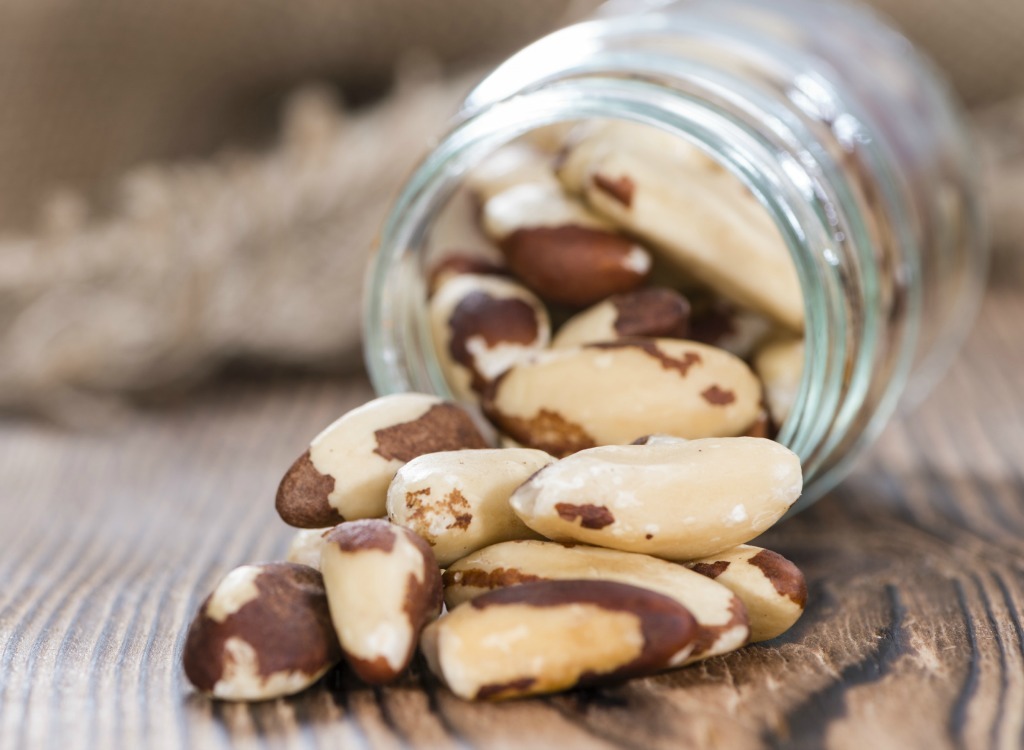
It doesn't take much to get the benefit from these trail-mix standouts.
"Selenium is important for thyroid health. One of the best sources of selenium is Brazil nuts! Just a few per day is all you need," Sam Presicci, RD, Snap Kitchen lead registered dietitian in Austin, Texas.
Proper thyroid function is so vital that from age 35 on, an every-five-year screening schedule is recommended to monitor the gland and its hormonal effects, says a report published in the Archives of Internal Medicine.
In addition to the selenium, you'll find plenty of healthy fats in Brazil nuts.
"Nuts balance our fatty acid intake between the omega-3, omega-6 and omega-9 types—most of us get too much omega-6 and not enough omega-3 and 9. This, in turn, helps the body regulate inflammation. An abundance of certain types of omega-6 fats, which are typically the ones found in processed foods, chips, crackers, snack foods, and baked goods, turns up inflammation in the body," Dixon adds.
Sweet Potatoes

Sweet spuds join their plain potato cousins in the potassium-providing posse—and offer other benefits, too.
"Sweet potatoes are a staple in the Okinawan diet. Okinawa is a Japanese island with some of the longest-lived people on the planet and the lowest rates of chronic diseases, including cancer, stroke, heart disease, and diabetes. Okinawans eat less rice and more sweet potatoes than typical Japanese, and this key difference in the diets of these two groups is believed to play a role in why Okinawans can outlive even other Japanese people," Dixon says.
Why are sweet potatoes such superstars? They're loaded with carotenes and fiber, and the starch increases the feeling of fullness. Try it chilled for the biggest benefits. "When a potato is cooked and cooled, it forms a substance called resistant starch. This unique form of carbohydrate seems to be especially beneficial for gut health and enhances microbiome diversity. The more diverse the microbiome, the healthier the person," Dixon says.
Olive Oil
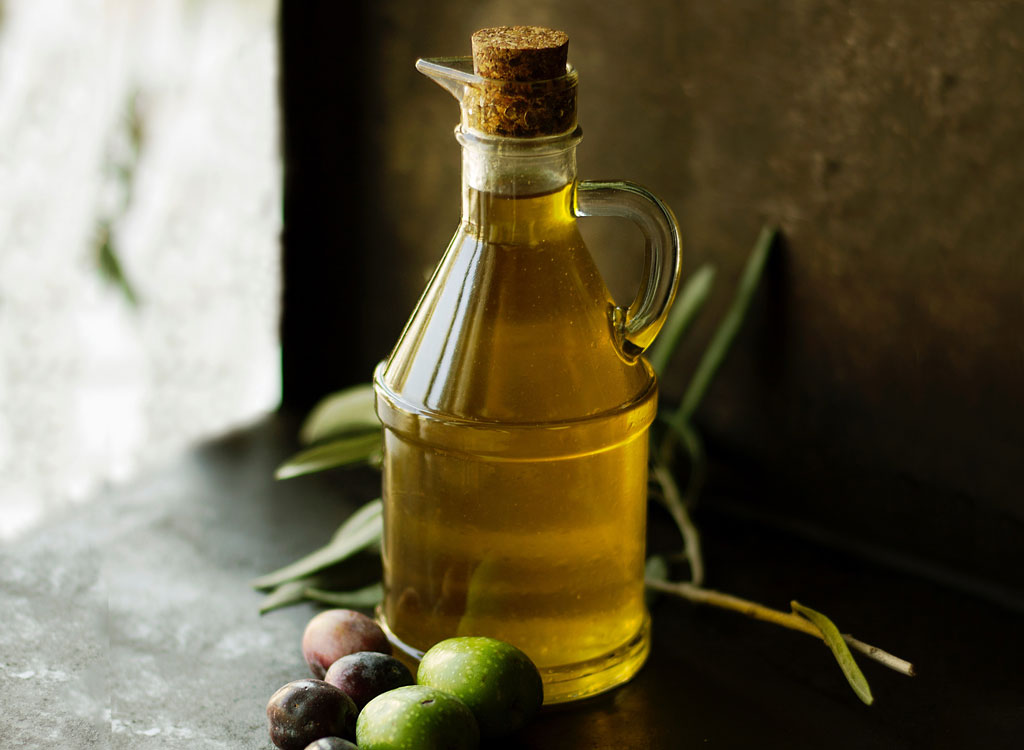
Your heart will thank you for drizzling on a bit of extra olive oil. This Mediterranean diet staple provides polyphenols and reduces heart-disease risk.
"Cardiovascular disease is the number one killer in the U.S., and heart disease doesn't start the day someone has a heart attack. It's the decades of damage to the vascular system that puts people at risk. Preventing this damage from starting, ideally by your 30s, is the best way to keep your heart healthy," Dixon says.
Olive oil is proven to limit oxidative stress and platelet aggregation, the latter of which is related to blood clots that can possibly cause strokes, heart attacks, deep vein thrombosis and pulmonary disease.
Avocado
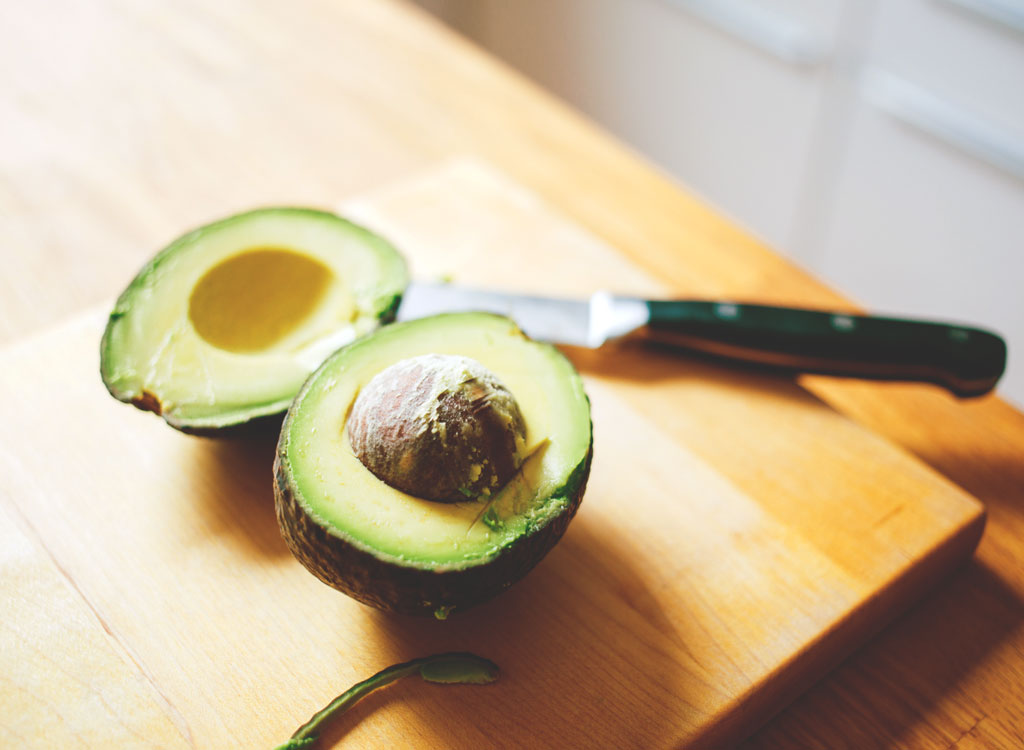
Fat doesn't make you fat, no matter what your mom's diet books said.
"A lack of dietary fat can cause dull, dry hair and strip the skin of its healthy glow that you remember from your teens and 20s. Choose fats from unsaturated sources like avocados, nuts, seeds, and oils that provide anti-inflammatory benefits," says Rachel Fine, RD, a registered dietitian and board-certified specialist in sports dietetics at To The Pointe Nutrition in Great Neck, New York.
Oats
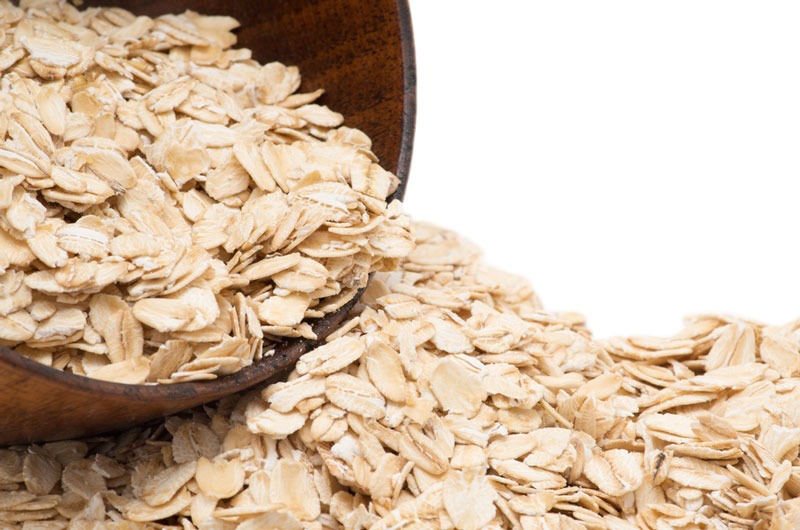
Carbs are cool, too. Just aim for the unprocessed ones, Fine suggests.
"Minimally processed carbs are high in naturally occurring fibers and offer significantly more nutrition per bite than highly processed carbs like some bread products and based goods," Fine says.
The soluble fiber in oats make them an overwhelmingly wise choice for breakfast or a snack.
"Oatmeal can help to manage cholesterol and blood glucose levels, two metrics that are associated with heart disease and diabetes," Reaver says.
Plus, that same fiber feeds your good bacteria, adds Anthony Youn, MD, a board-certified plastic surgeon in Troy, Michigan known for his non-surgical, anti-aging approach and TV appearances about holistic beauty. "The trillions of bacteria that make up the microbiome are fed by prebiotics, mainly fiber-rich foods, so ingesting a sufficient amount of fiber is incredibly important as we age. Having a healthy microbiome is a key to staying healthy overall, inside and out. A healthy microbiome results in healthy, more youthful skin as well," Youn says.
Beets

While your speed and strength begin to decline after age 25, according to the Encyclopedia of Sports Medicine and Science, you don't have to settle with sitting on the sidelines.
"Beets and spinach are especially good for anyone wanting to keep their athletic edge, says Schoenfeld. "Rich in naturally occurring nitrates, they increase endurance and performance by enhancing cardiovascular fitness. They also help control blood pressure and enhance mental focus by increasing blood circulation to the brain."
Kefir
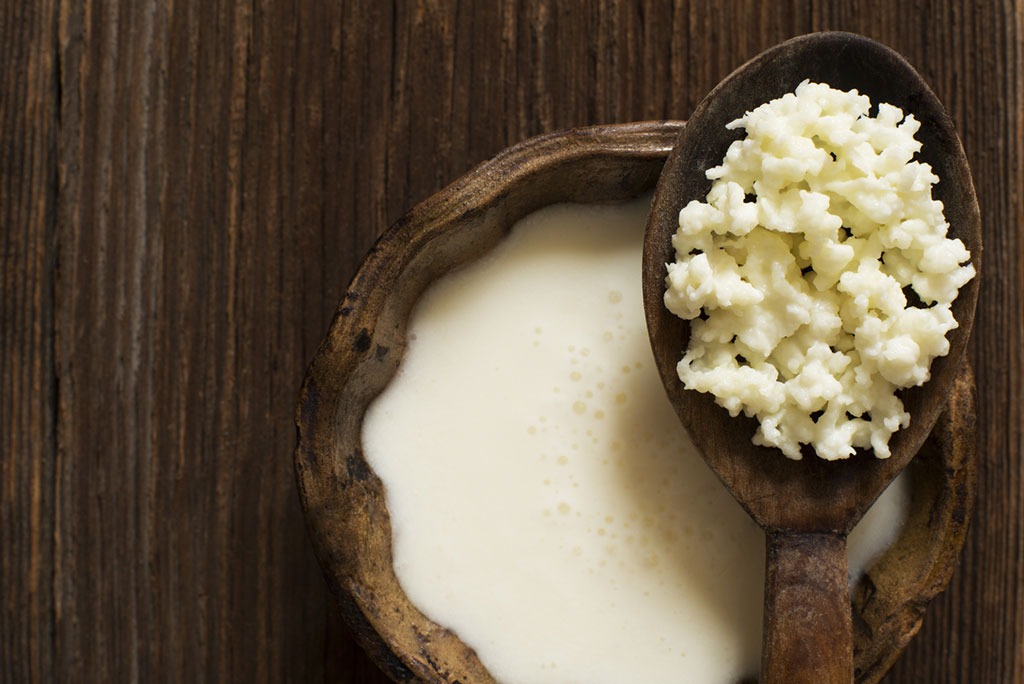
We're starting to be too clean for our own good, posits Chirag Shah, MD, a board-certified emergency medicine physician in El Segundo, California, and co-founder of Accesa Labs, a lab service that offers vitamin D testing.
"Our hygienic lifestyle keeps us away from beneficial bacteria in dirt that surround vegetables and fruit. We need to eat fermented foods to provide us with these good bacteria and all their benefits," he says.
Schoenfeld selected kefir, a yogurt-like dairy beverage, as her number one fermented find since it promotes an optimal balance of good gut bacteria and supports healthy blood pressure and mental calmness.
In addition to kefir, Shah is a fan of these fermented foods: sauerkraut, pickles, miso, tempeh, and kimchi.
Kombucha
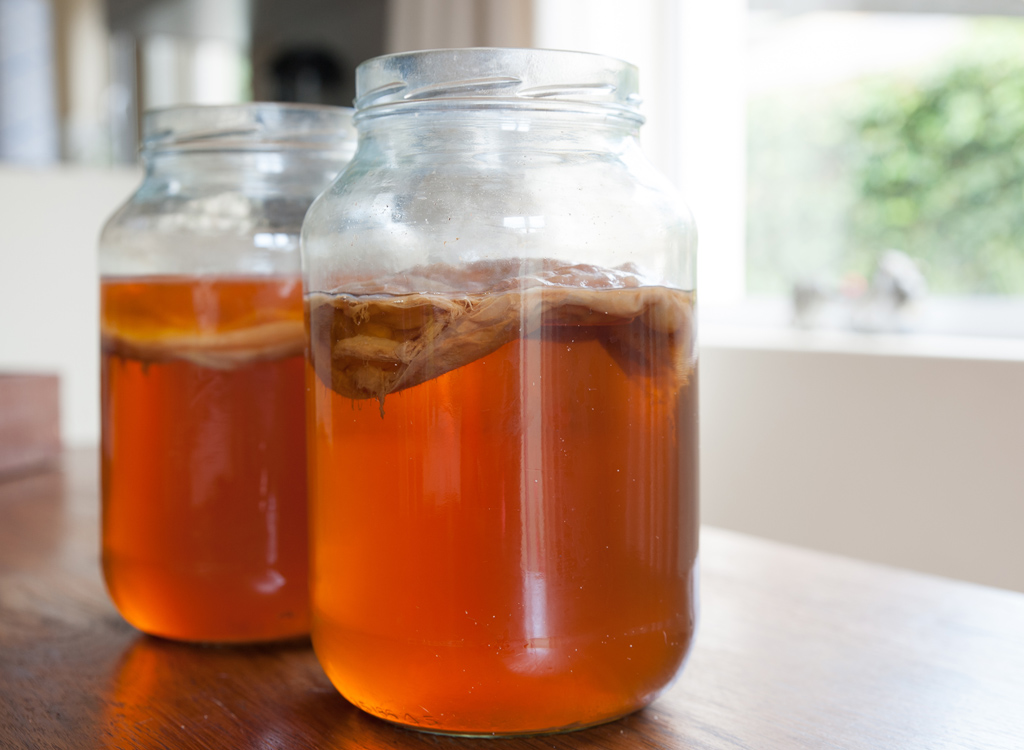
Dixon tacks kombucha on to the must-have fermented finds.
"As we age, our microbiomes tend to lose diversity and variety of bacteria. We know a more diverse microbiome is associated with better health. This is one of the mechanisms believed to contribute to declining health with age: Our microbiomes degrade over time! A more diverse microbiome is linked to anti-obesity effects, and the more variety of fermented foods consumed, the better," Dixon says.
Milk
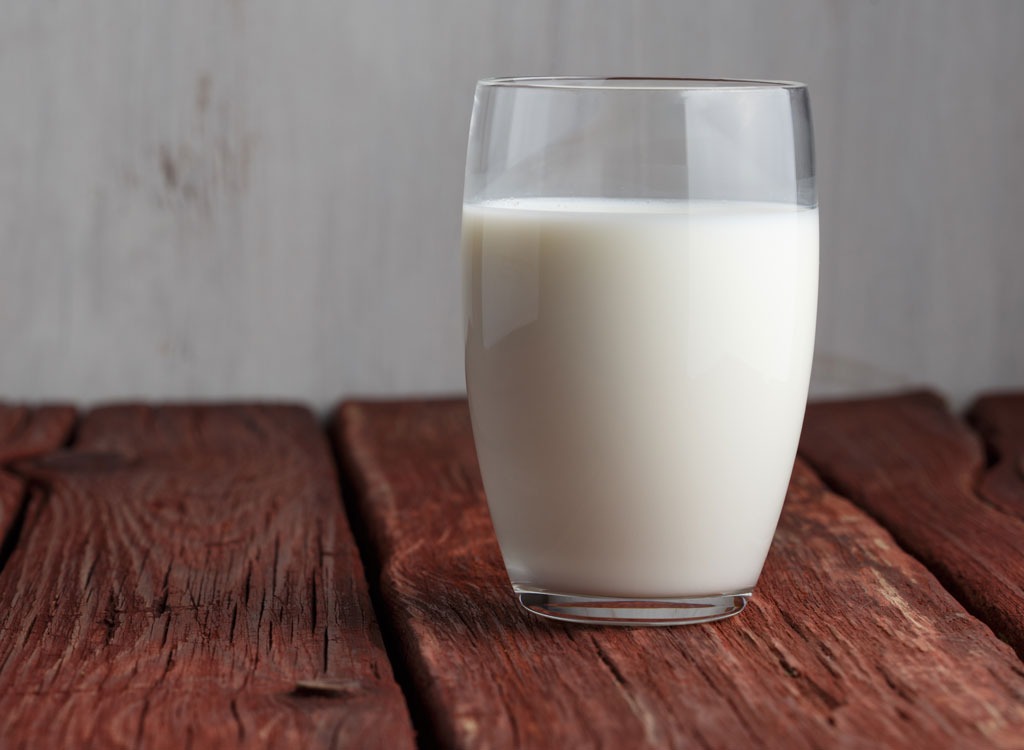
Bone up by drinking a glass of milk as a post-workout or bedtime snack. Calcium and vitamin D, both found in spades in milk, are essential to both building and maintaining adequate bone mass.
"While we reach our peak bone mass between ages 25 and 30, our bones are a reservoir of constant remodeling. A diet lacking in calcium and D puts you at increased risk for weak bones," Fine says.
For the next 60-plus (hopefully!) years of your life after that 25-year-marker, your body is no longer depositing new bone mass. That means you'll be relying on the bone deposits you made during your first few decades, and can simply do your best to preserve the integrity of your remaining bone, Reaver says.
Or Fortified Milk Substitutes

If dairy is a "don't" for you, try unsweetened nut milk instead.
"Almond Breeze Almond Milk is an excellent choice since you can keep it in your pantry for up to a year! One cup has 45 percent of the calcium you need each day, plus 25 percent of your vitamin D and 50 percent of your vitamin E quota," says Bonnie Taub-Dix, RD, creator of BetterThanDieting.com and author of Read It Before You Eat It: Taking You From Label to Table. "Use it in coffee (I like the chocolate here!), in smoothies, baking, sauces and more."
Mushrooms
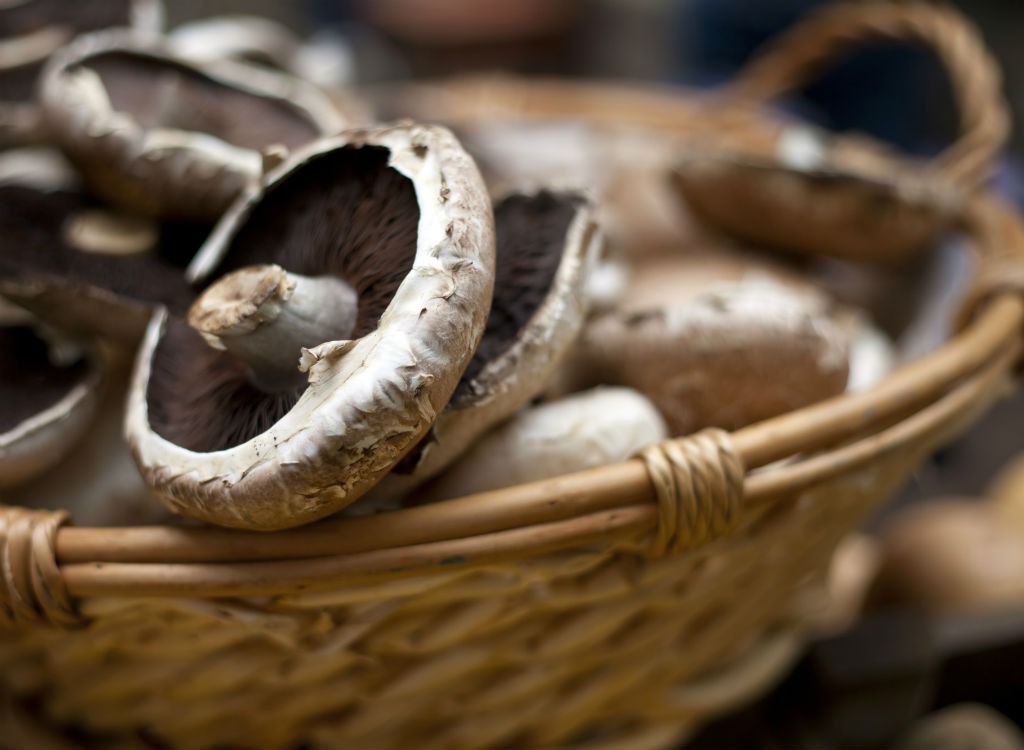
You can find vitamin D beyond the dairy case.
"Mushrooms are a good source of vitamin D," Shah says. "I'll echo the earlier statements and reiterate the importance of vitamin D after 30. At this time, it becomes even more important in the body as it helps maintain healthy bones and muscles and regulates calcium levels."
Eggs
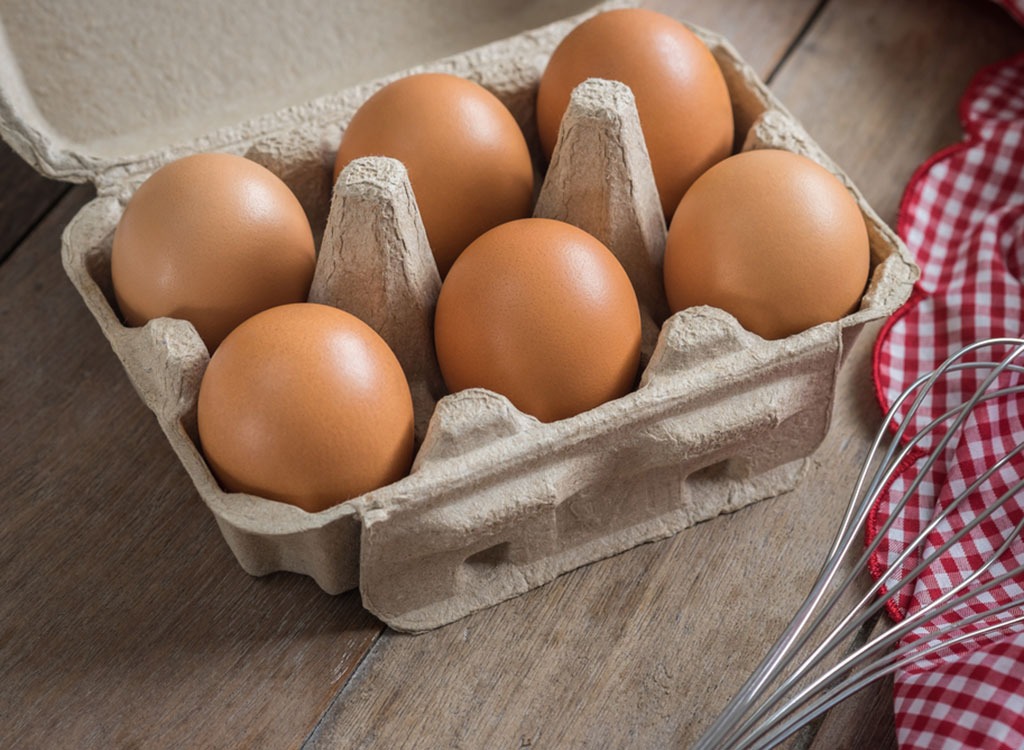
Eat the whole egg for the real D-eal.
"Vitamin D is also essential for keeping our immune system strong and active. So spend more time outdoors if you can, consider taking a vitamin D supplement and eat foods like salmon, tuna, and eggs," Youn says.
(Note that pretty much all of the vitamins in an egg are in the yolk.)
Eggs are just one of our top 40 foods that jumpstart weight loss.
Lean Beef
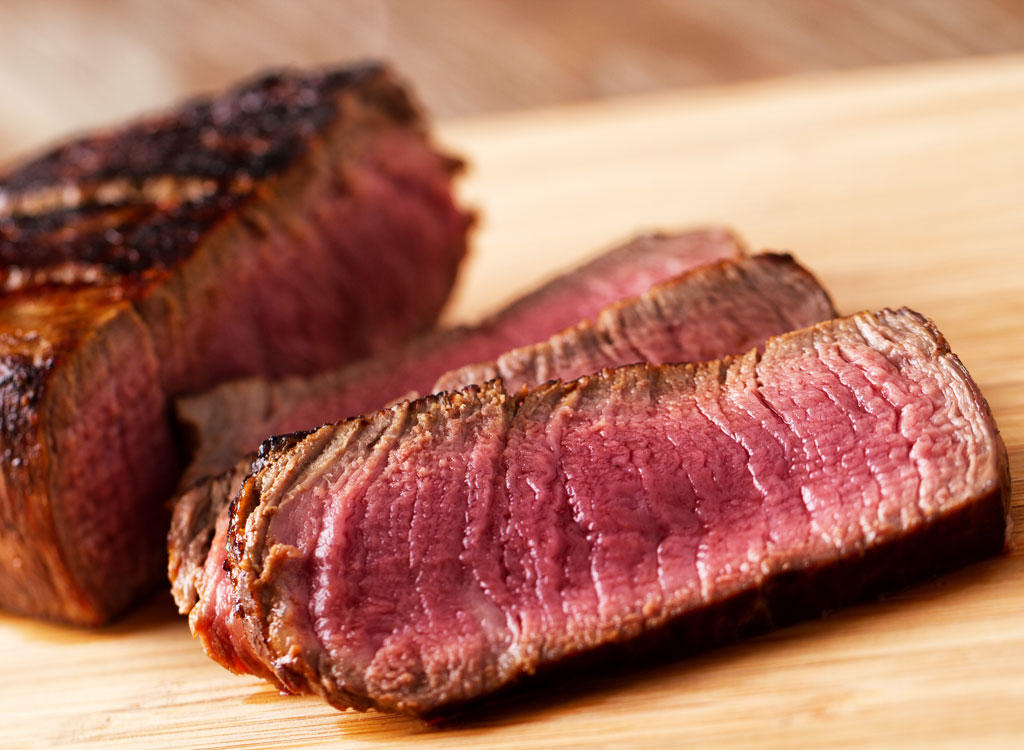
"For women, iron is specifically important, as your body naturally loses iron during pregnancy and menstruation. Iron deficiency can lead to anemia, which can cause extreme lethargy, weakness, dizziness, headaches, and more," Stricoff says.
Heme-iron, which is found in meat, is absorbed better than non-heme iron, which is found in plants such as spinach.
"However, if you consume iron from plants with vitamin C, it will increase the absorption. For example, use a citrus-based dressing on a leafy green salad to maximize your iron absorption," she says.
Beef is also a boon in terms of its protein quotient. For example, a three-ounce sirloin steak will score you 23 grams.
"I advise my clients to even out protein intake between 25 to 30 grams at each meal. This is more important after your 30s because, with each subsequent decade, there is a 3 to 8 percent loss of muscle, so it's important to keep what you have by fueling your muscles with protein," says Jonathan Valdez, RD, a registered dietitian at Genki Nutrition in Astoria, New York, and a media spokesperson for New York State Academy of Nutrition and Dietetics.
Broccoli

Don't detox. Do go big on broccoli.
"Cruciferous vegetables are the 'detox' members of the plant kingdom. Rather than leaning on dangerous laxative teas, the Master Cleanse, and juice fasts (which drop pounds fast, but not permanently) eat foods like broccoli, cauliflower, and Brussels sprouts," Dixon says. "Cruciferous vegetables support the body's natural detoxification processes. We have enzymes, or chemical systems, within our cells (particularly in the liver), and the activity of these enzymes is bolstered by the presence of specific substances found only in cruciferous vegetables."
Women should grab an extra bunch of broccoli, since it's been shown to aid the body with estrogen metabolism, helping to keep estrogen levels in a healthier (lower) range. Excess estrogen is implicated in hormone-related cancers: breast, ovarian, and uterine, Dixon says.
Citrus Fruits

"As we get older, collagen—which is the building block of our skin—becomes more and more degraded. This is one reason why our skin looks thinner and more wrinkled with age," Youn says. "Vitamin C fights free radicals which damage our skin and our inner organs and is a critical part of the formation of collagen."
Oranges, lemons, kiwi, strawberries, tomatoes, and kale are all C standouts.
Bone Broth

Collagen can also be replenished by bone broth.
"Collagen-rich foods and drinks make the skin look and feel younger and healthier, but that's just the beginning. They can also help soothe the gut and improve the microbiome," Youn says.
For the biggest benefit, dress up your broth with colorful vegetables.
"This resulting soup is a great source of collagen protein, which supports smoother skin, stronger and more resilient bones and joints, and even helps with blood-sugar control and detoxification," Schoenfeld says. "By cooking the vegetables in the broth, the soup also provides potassium to support energy production. When we don't have enough potassium, our body 'steals' it from our muscles, accelerating the muscle loss that begins to take place after our 20s.".
Vegetable Soup
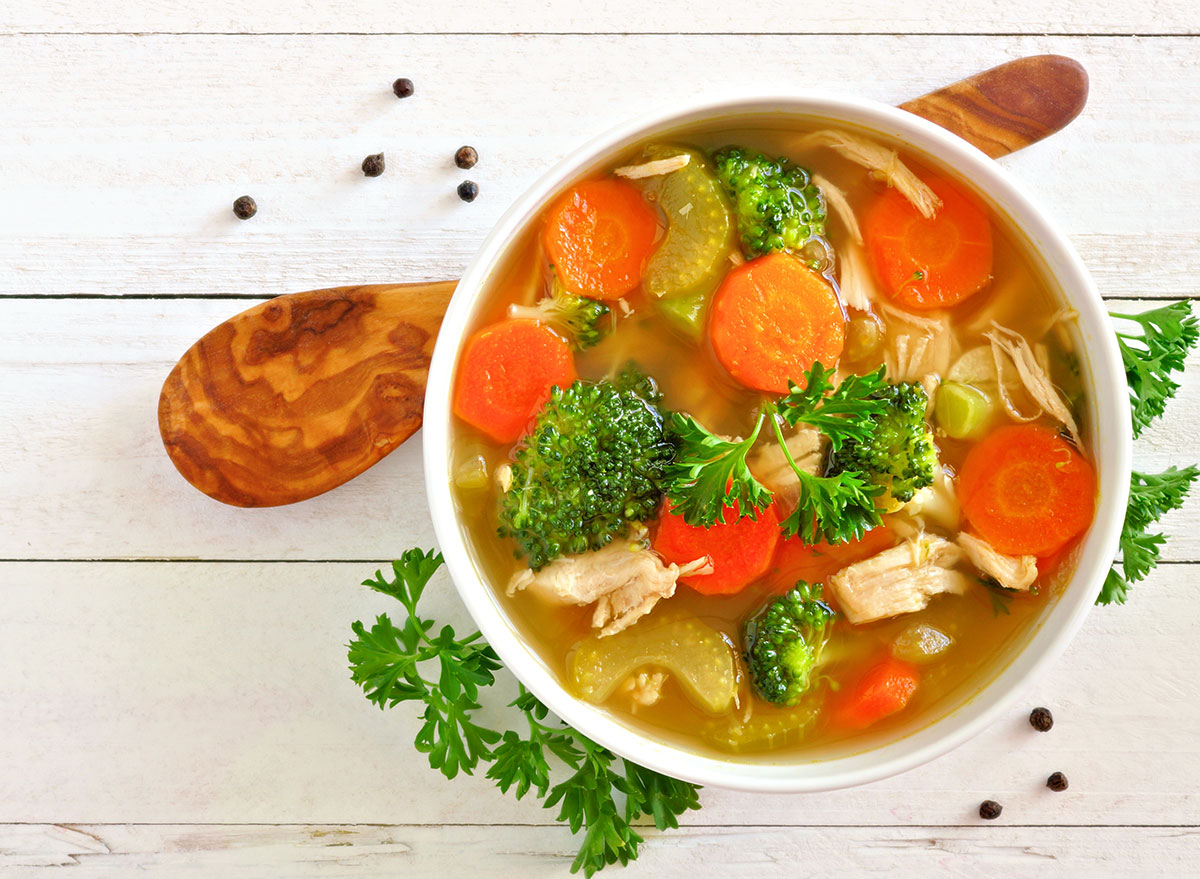
For the biggest benefit, dress up your broth with colorful vegetables.
"This resulting soup is a great source of collagen protein, which supports smoother skin, stronger and more resilient bones and joints, and even helps with blood-sugar control and detoxification," Schoenfeld says. "By cooking the vegetables in the broth, the soup also provides potassium to support energy production. When we don't have enough potassium, our body 'steals' it from our muscles, accelerating the muscle loss that begins to take place after our 20s.".
All the Spices

Spice up your life, Dixon says. There are thousands of phytonutrients with proven health benefits hiding in your pantry. Here are some of her go-tos—and their good-for-you qualities: Rosemary and saffron are believed to reduce risk of dementia, turmeric reduces cancer risk, and cinnamon, ginger, and sage cut back on the formation of plaques in the brain linked with Alzheimer's disease.
"Herbs and spices even make foods associated with increased disease risk better for you. They have been shown to reduce the formation of carcinogens in grilled and barbecued meats!" Dixon says. "According to the American Institute for Cancer Research, marinating meat in a mixture of vinegar, lemon juice or wine, plus herbs and spices such as rosemary, basil, sage or thyme, seems to be the key to limiting carcinogen formation in meats cooked at high temperature."

